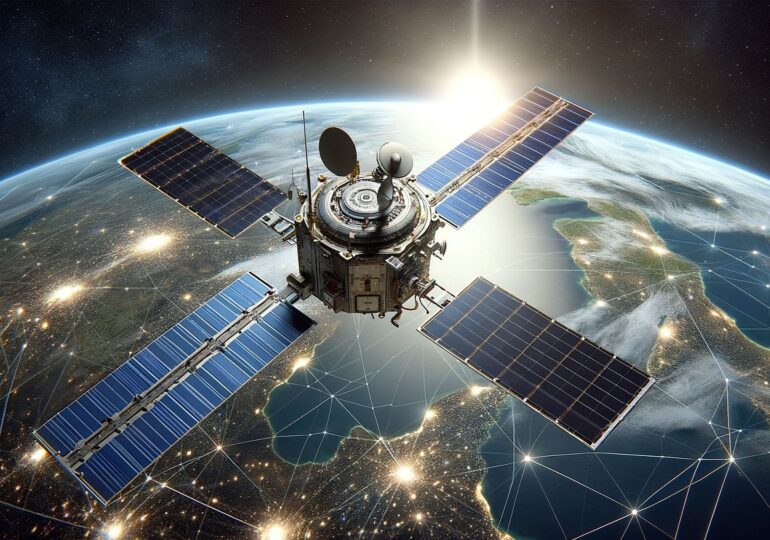Moscow aims to develop a satellite internet network, a system similar to the one created by Elon Musk. According to the plan, by 2030 Russia should launch nearly 300 satellites into orbit.
Aware of the advantages of the Starlink satellite internet network, Russia plans to create a similar system. An ambitious project that will require huge resources. The cost of this program is estimated at around 445 billion rubles, approximately 4.87 billion dollars, as reported by Meduza.
By the end of 2030, the Russian private company Bureau 1440 is expected to have 292 satellites in orbit out of the 383 that will be launched.
According to a document analyzed by the mentioned website, the majority of the costs of the low Earth orbit satellite constellation will mainly be borne by the company Bureau 1440. It will allocate 3.6 billion to the project. Another 1.27 billion will be provided through subsidies for rocket launches, and 668 million dollars will come in the form of subsidies for launching satellites into low Earth orbit.
Officially, the project's goal is to increase the percentage of households in Russia with access to high-speed internet to 97% by 2030 and to 99% by 2036.
Bureau 1440 (part of the technology company ICS Holding) is a Russian private space company that intends to launch internet access services in 2027. However, information about the owners of Bureau 1440 and the financial indicators of this company are undisclosed, as reported by Meduza.
- Elon Musk controls two-thirds of all satellites on the planet, and the network is constantly growing
The planning of creating a system similar to Starlink in Russia became public in December 2023. Vedomosti wrote that Bureau 1440 will launch a commercial satellite internet service in 2027. The first three communication spacecraft of Bureau 1440 were launched last summer as part of the Dawn 1 mission to conduct orbital experiments.
Despite all the resources Moscow is willing to invest, creating a satellite constellation will not be without challenges.
A source close to one of the developers of domestic communication equipment noted to Vedemosti that Bureau 1440 may face difficulties in placing satellites into orbit, as rocket launches are scheduled years in advance. Additionally, Russia does not possess a heavy-lift rocket that consistently flies with the large payload required to transport powerful satellites.
Starlink is a global satellite system implemented by the American billionaire Elon Musk's company SpaceX to provide high-speed satellite internet access in locations with unreliable or costly connections.
Since May 2019, within the Starlink project, SpaceX has already launched over 7,000 satellites, some of which have already been decommissioned. Over 6,300 such satellites are currently in orbit and operational.
Last year, the European Parliament approved a plan costing 3.15 billion euros to create a European satellite constellation that will provide communication and internet services for both security and public users.
The network, called IRIS² and first presented by Internal Market Commissioner Thierry Breton, will contribute to the EU's independence from other countries and commercial services for vital communications, "especially in security and defense."
Also, China launched its first batch of internet satellites in August, which are part of a constellation called "Thousand Sails." It will have 15,000 satellites providing global internet coverage, rivaling the Starlink network. By 2025, Beijing aims to have 648 satellites in the first phase of constellation construction.
T.D.

